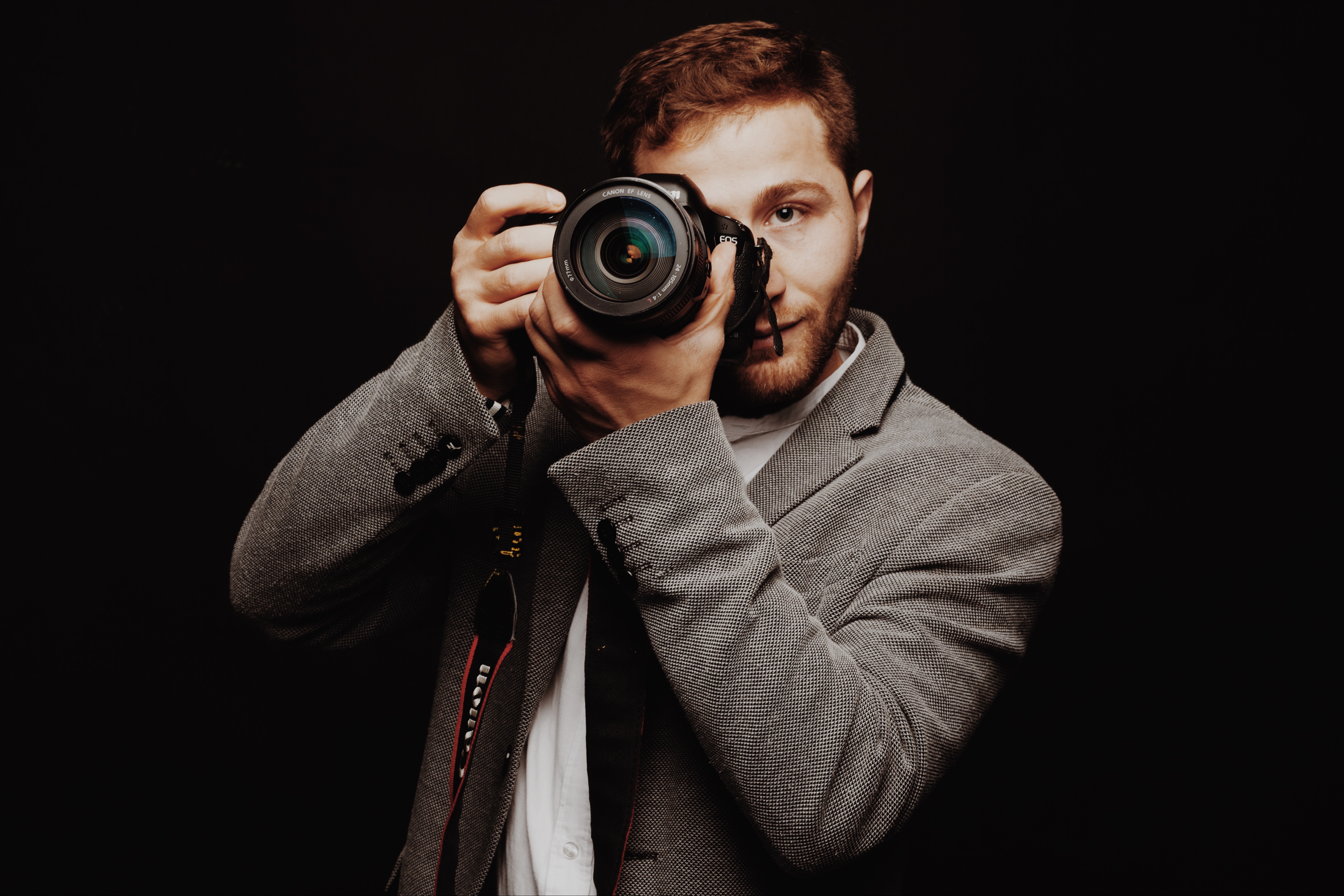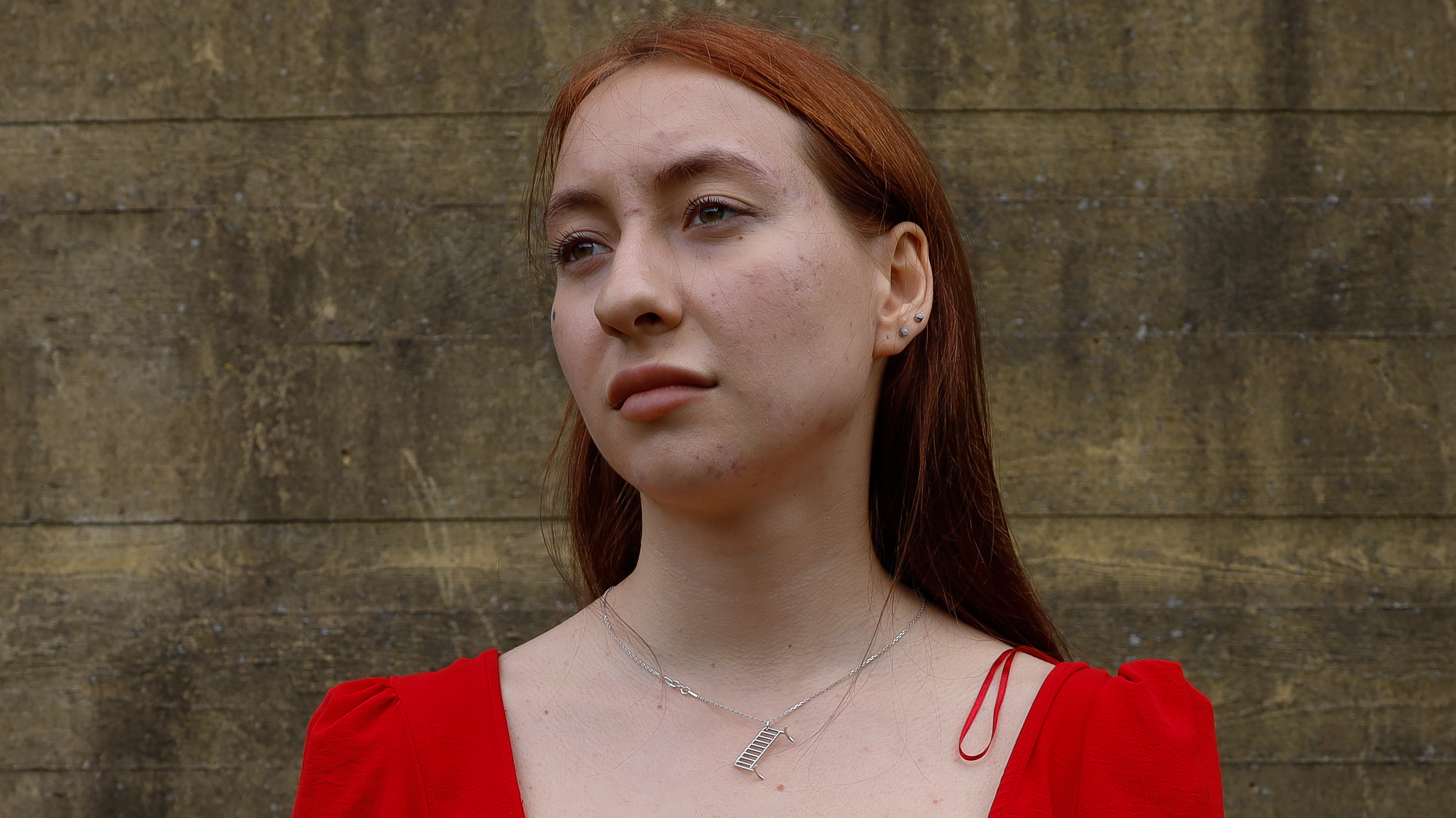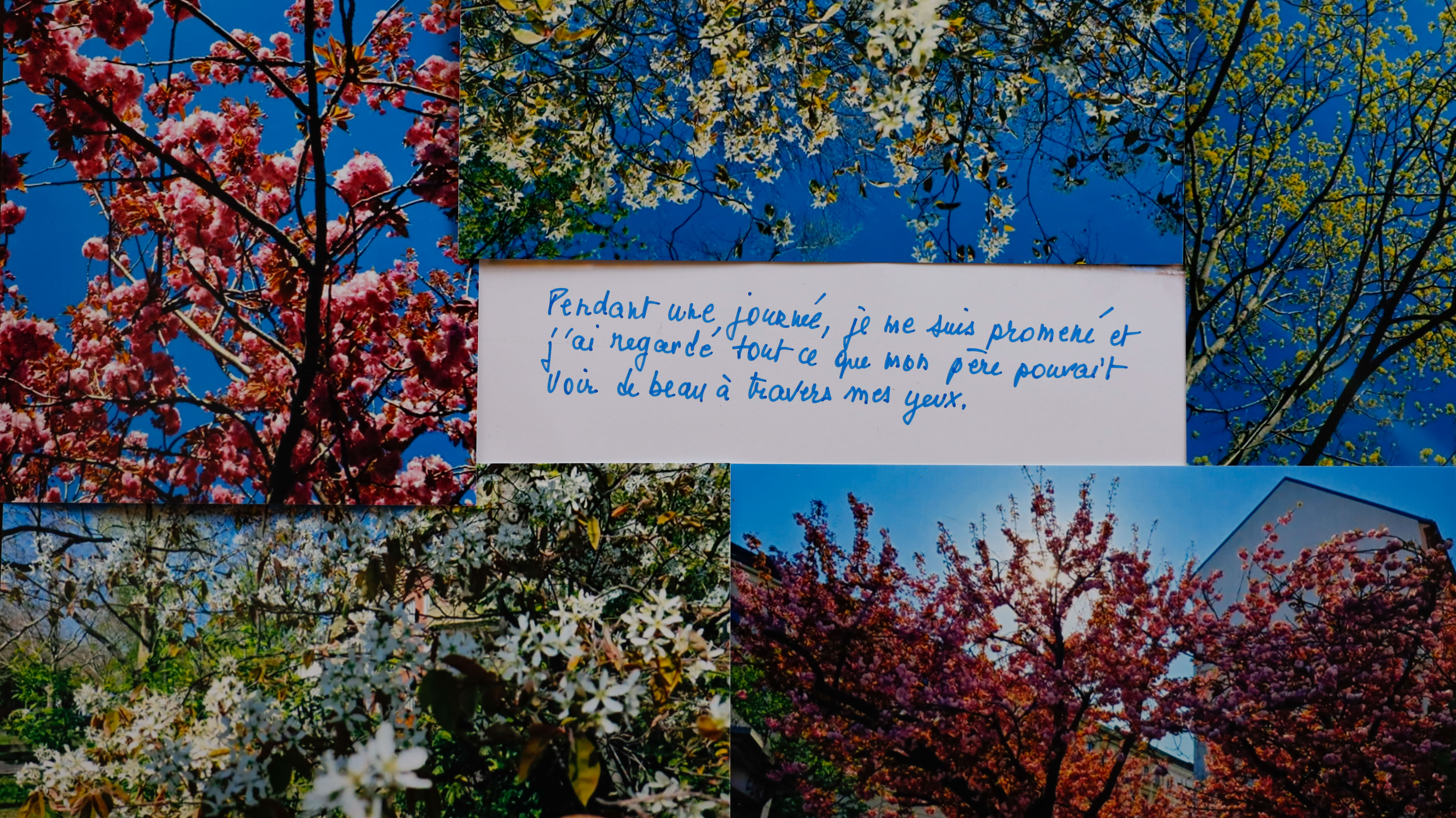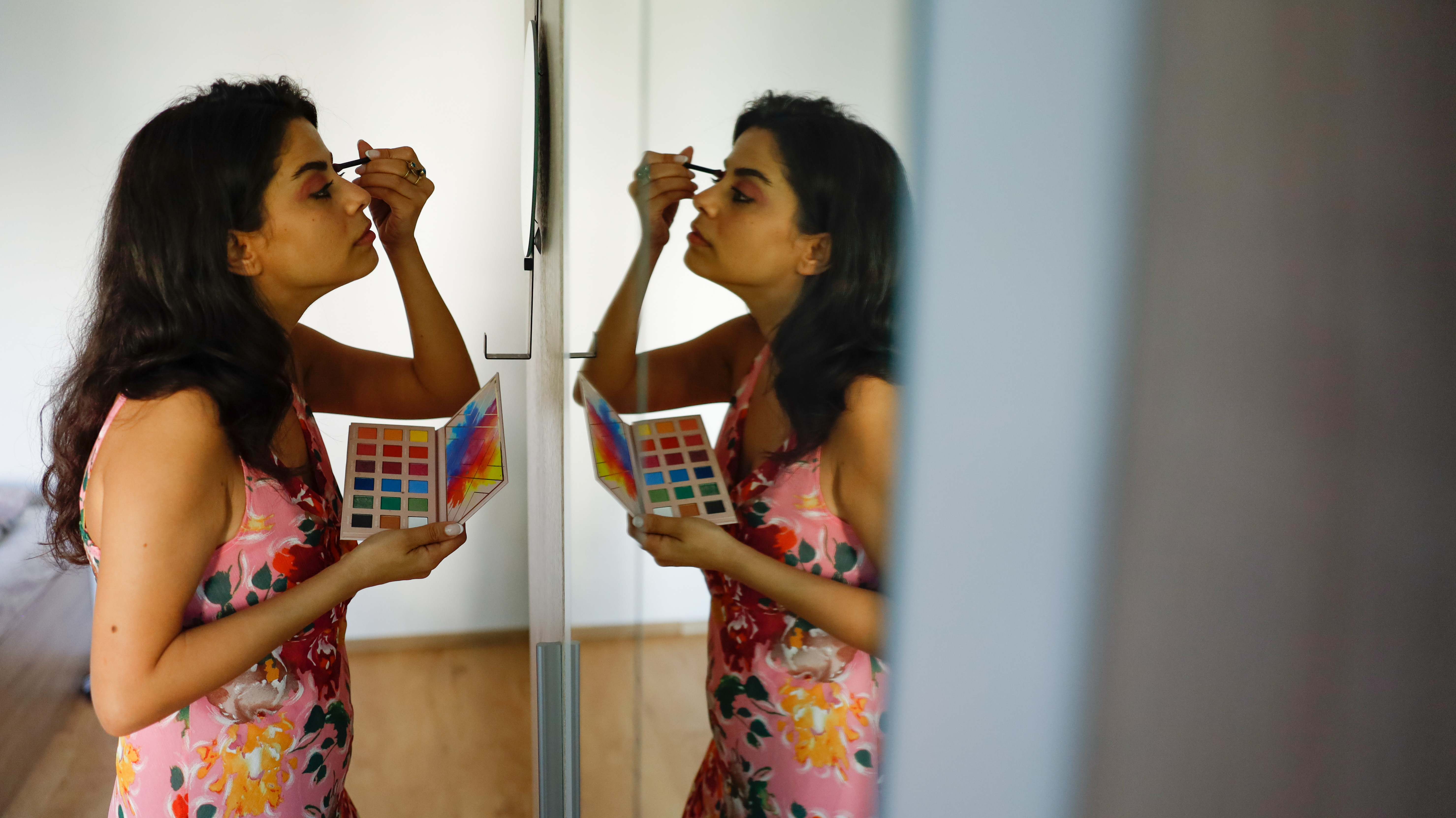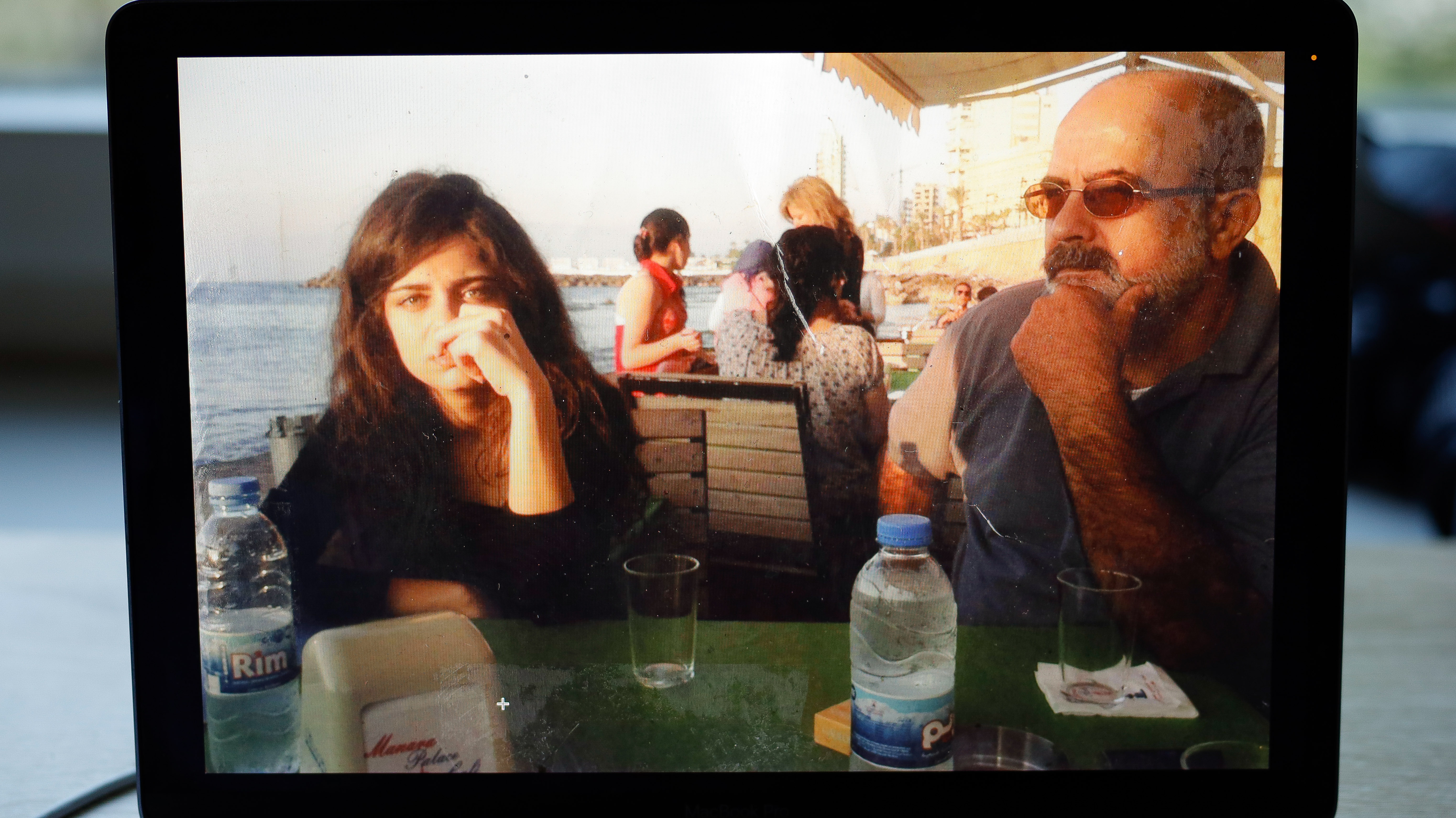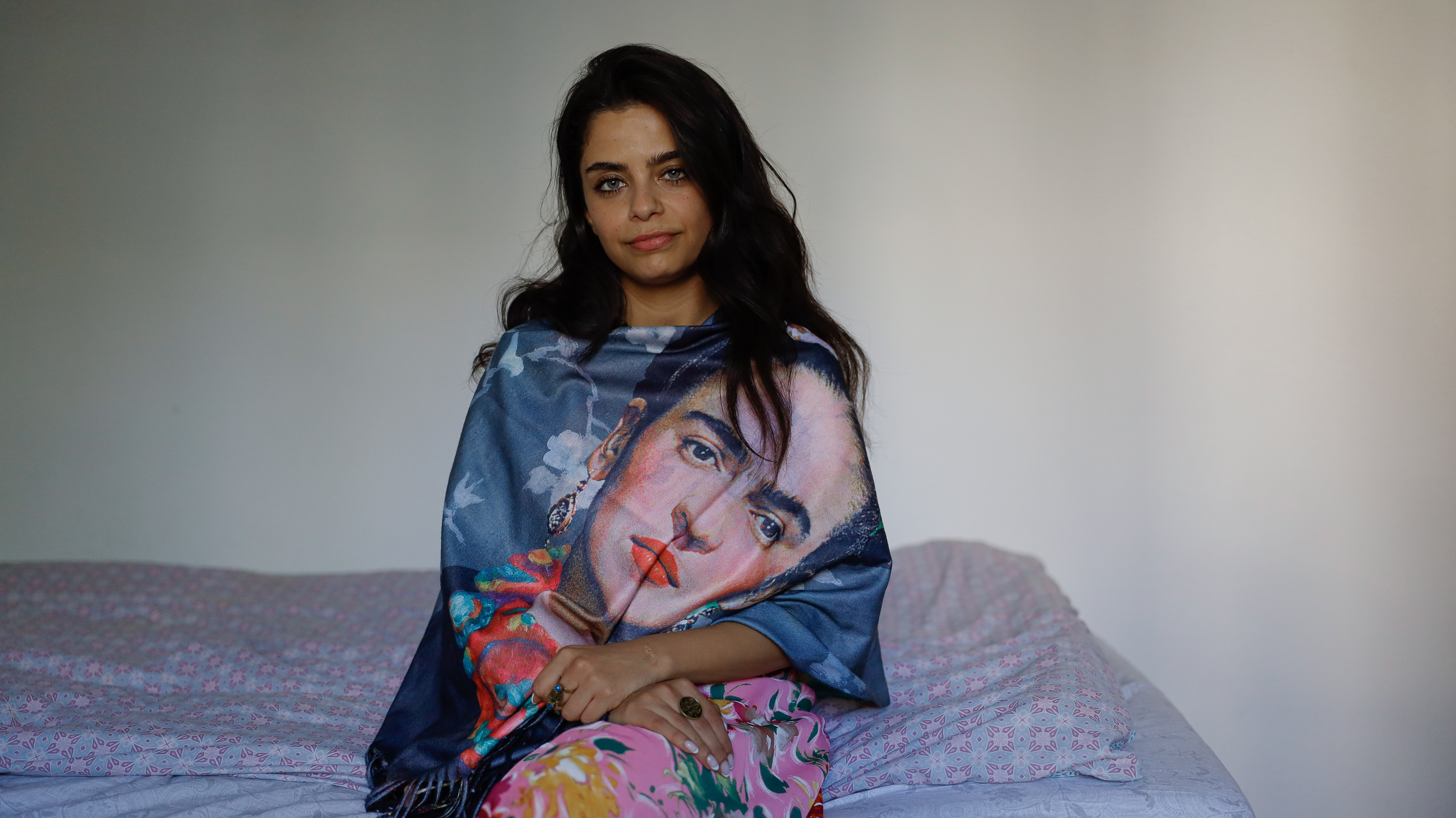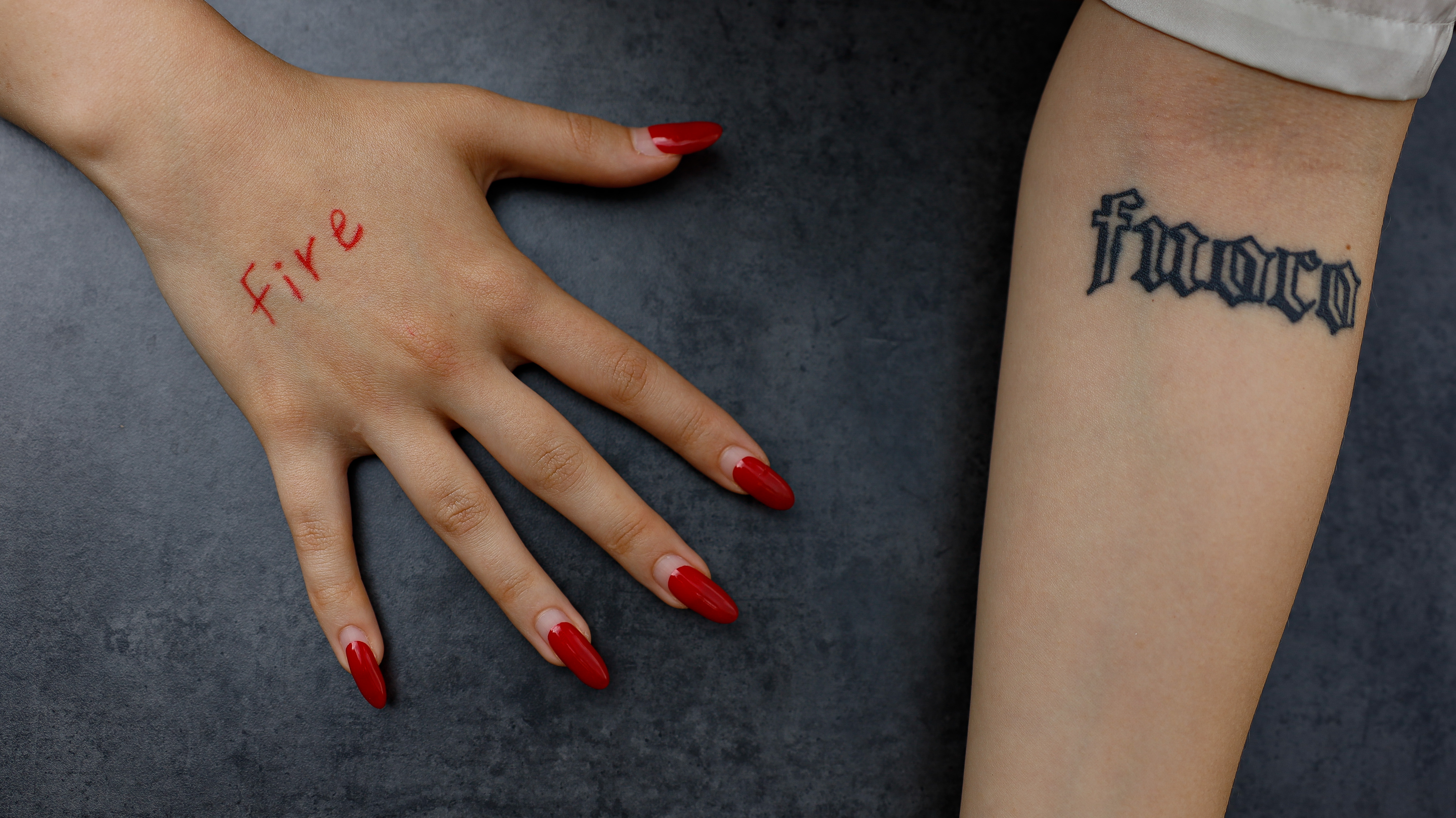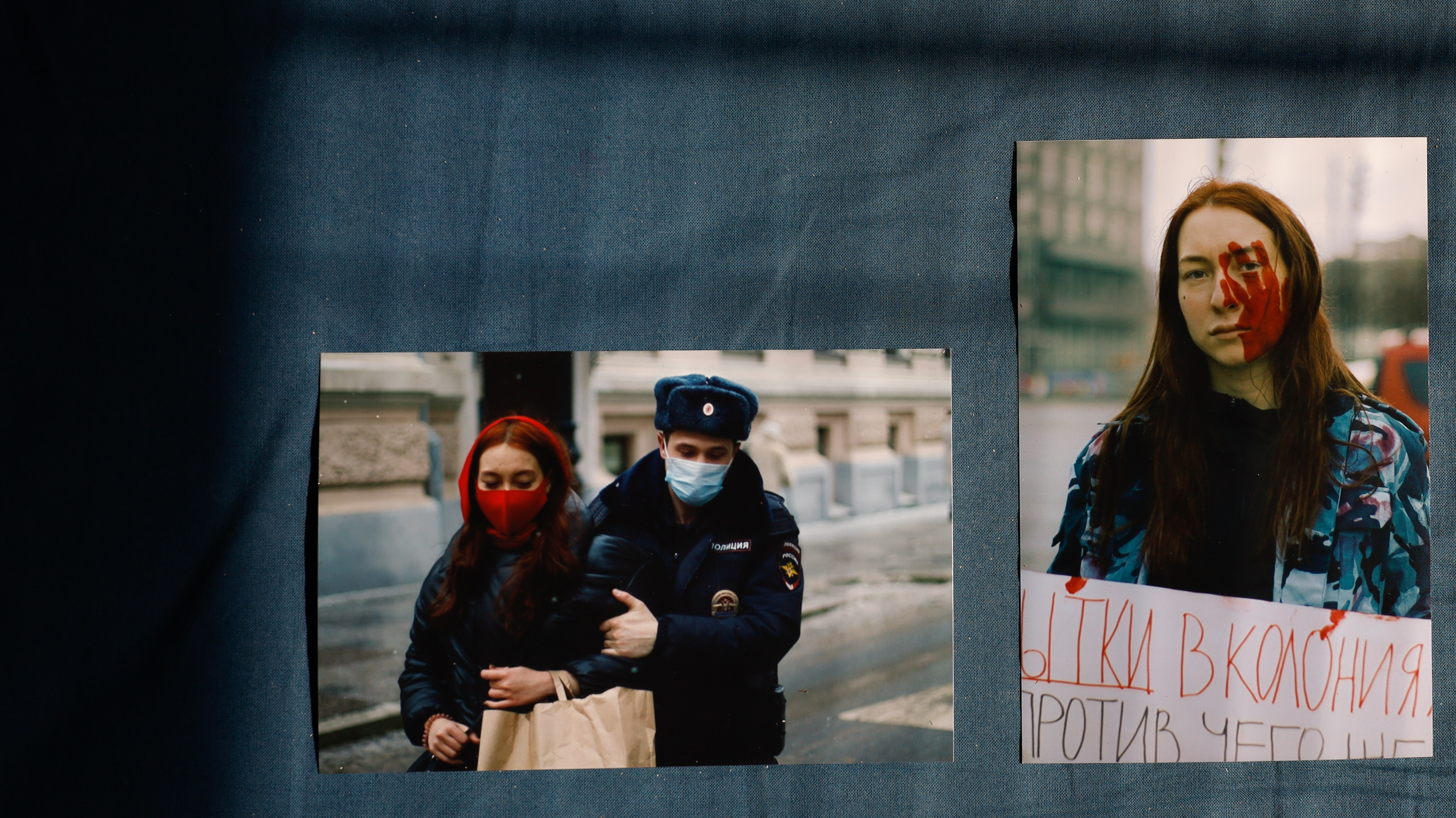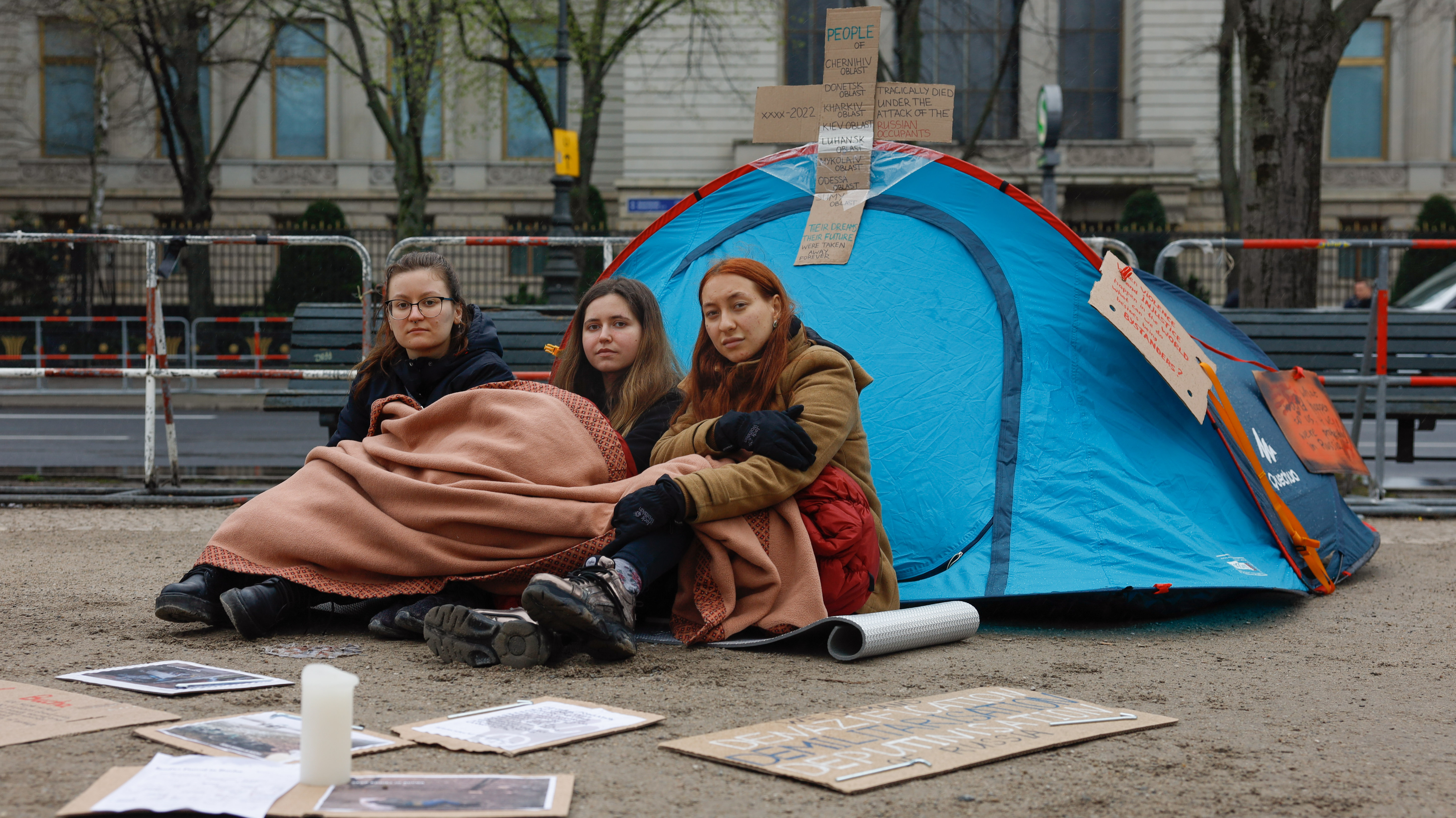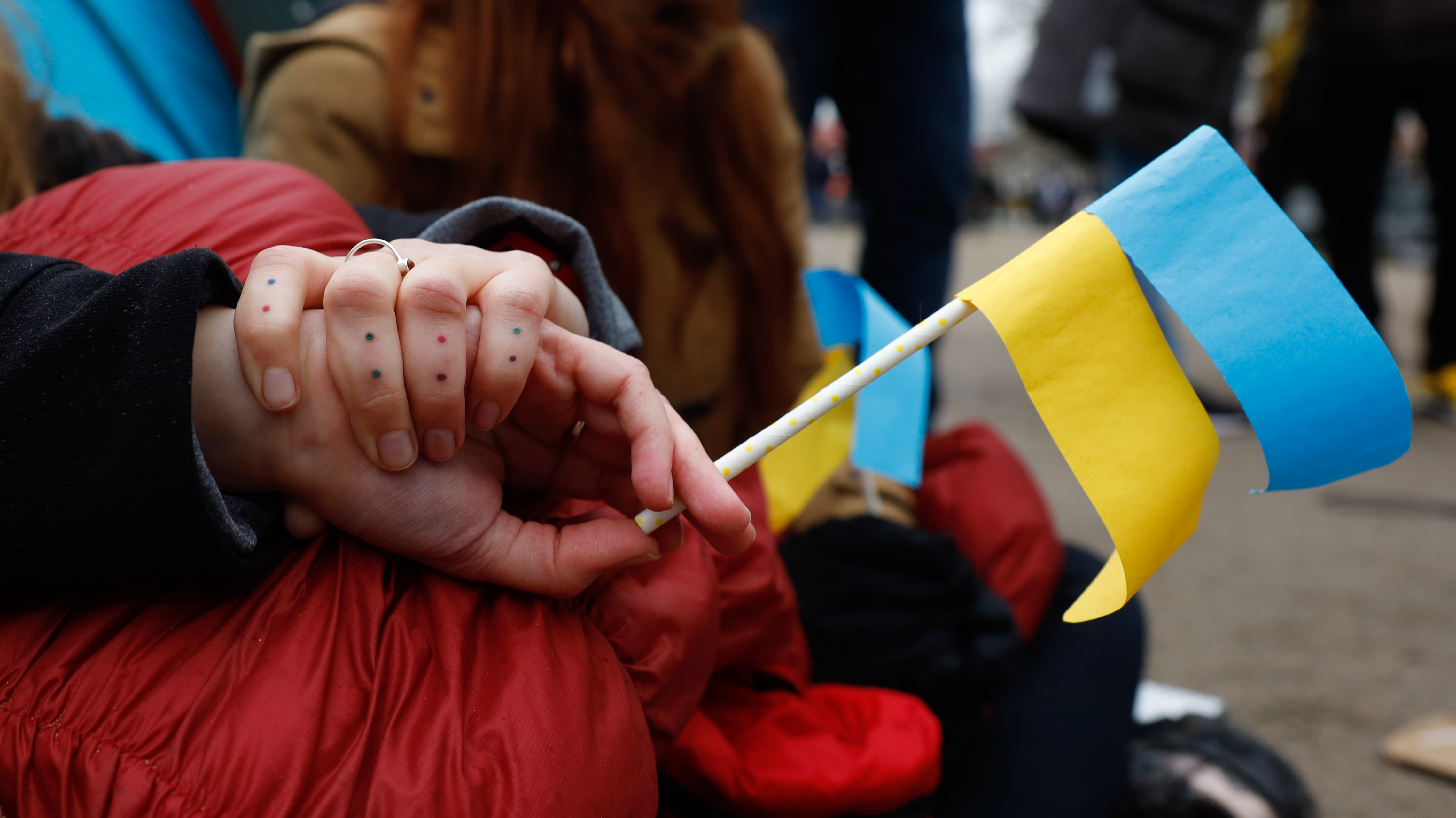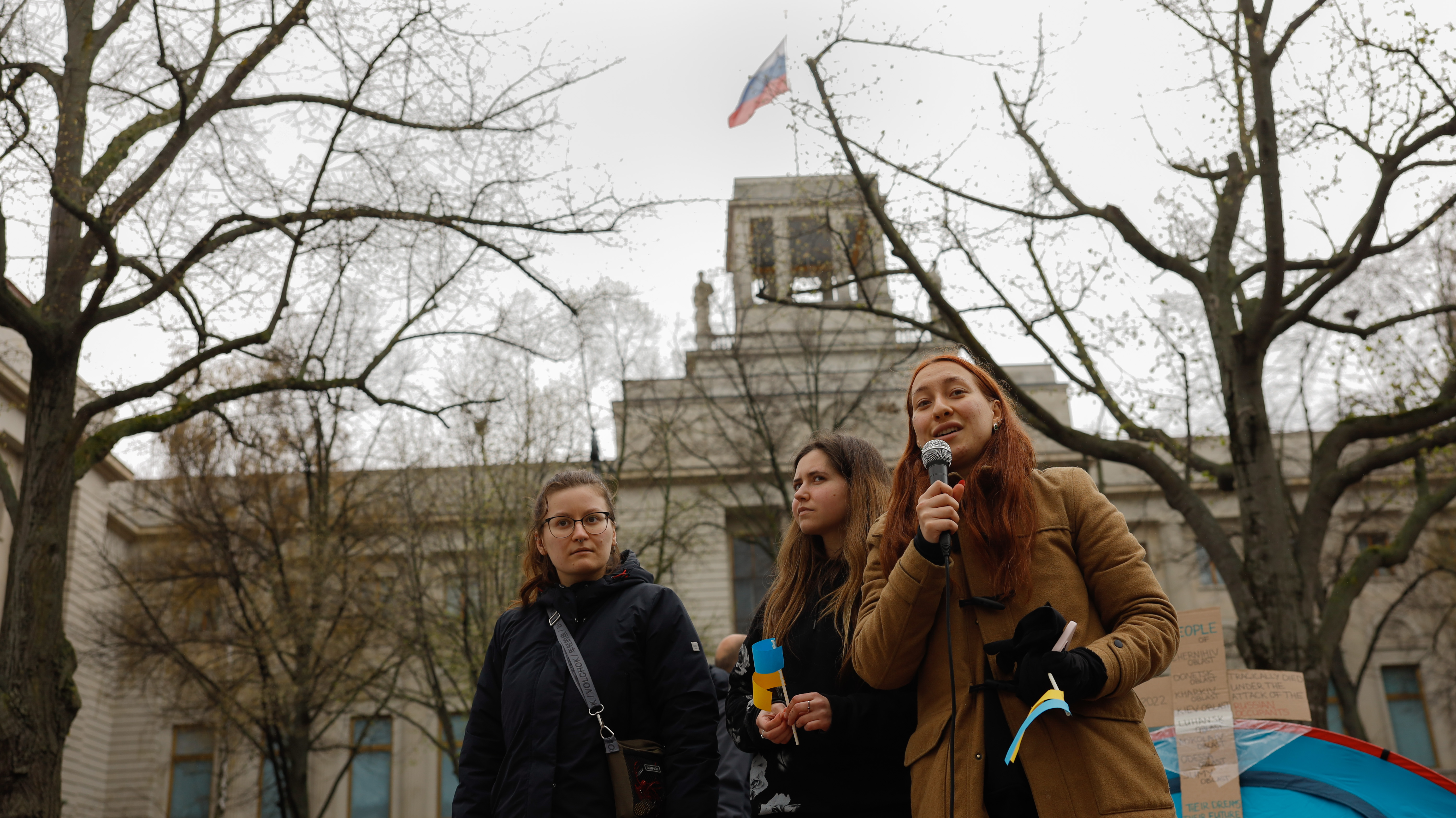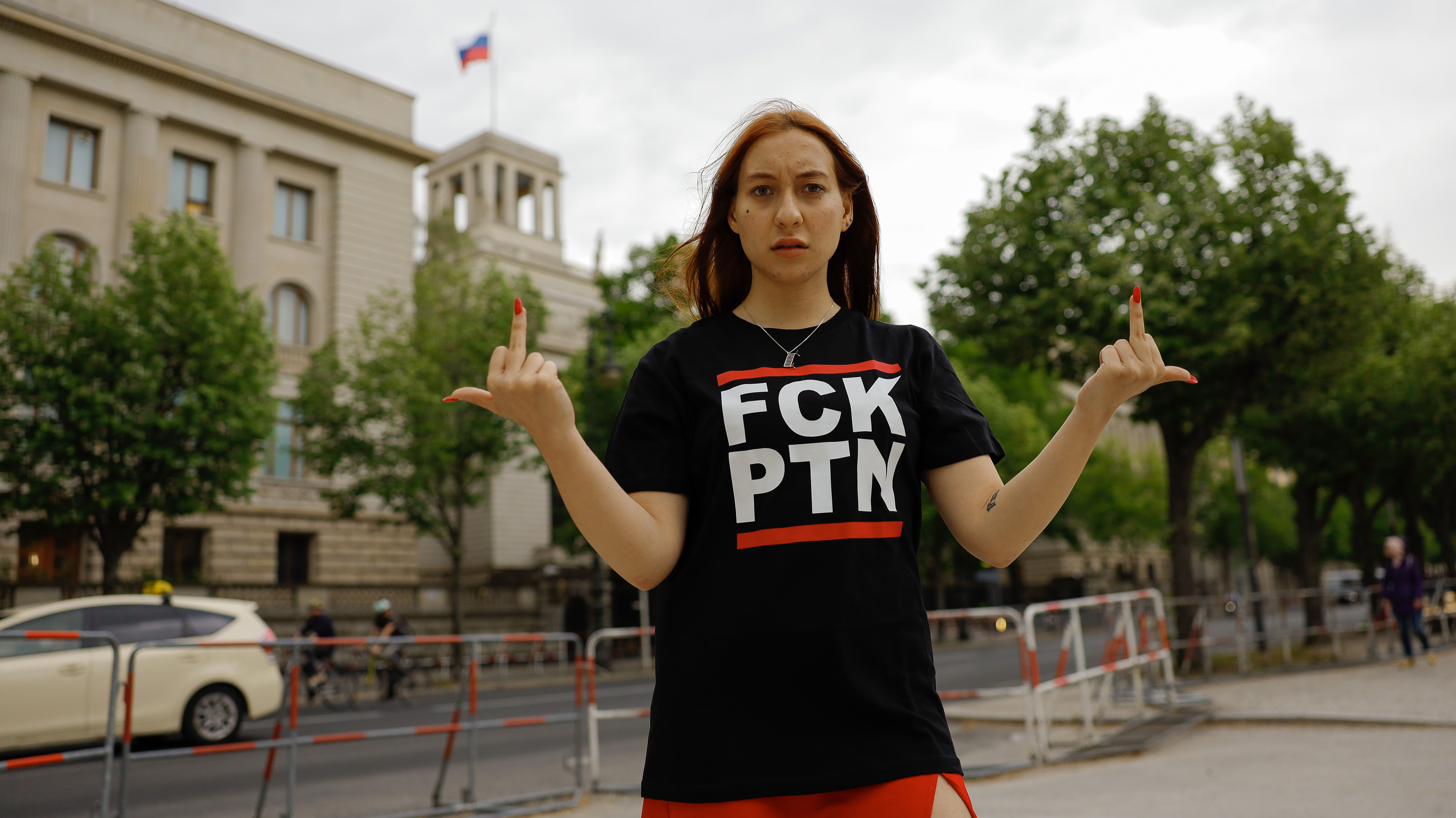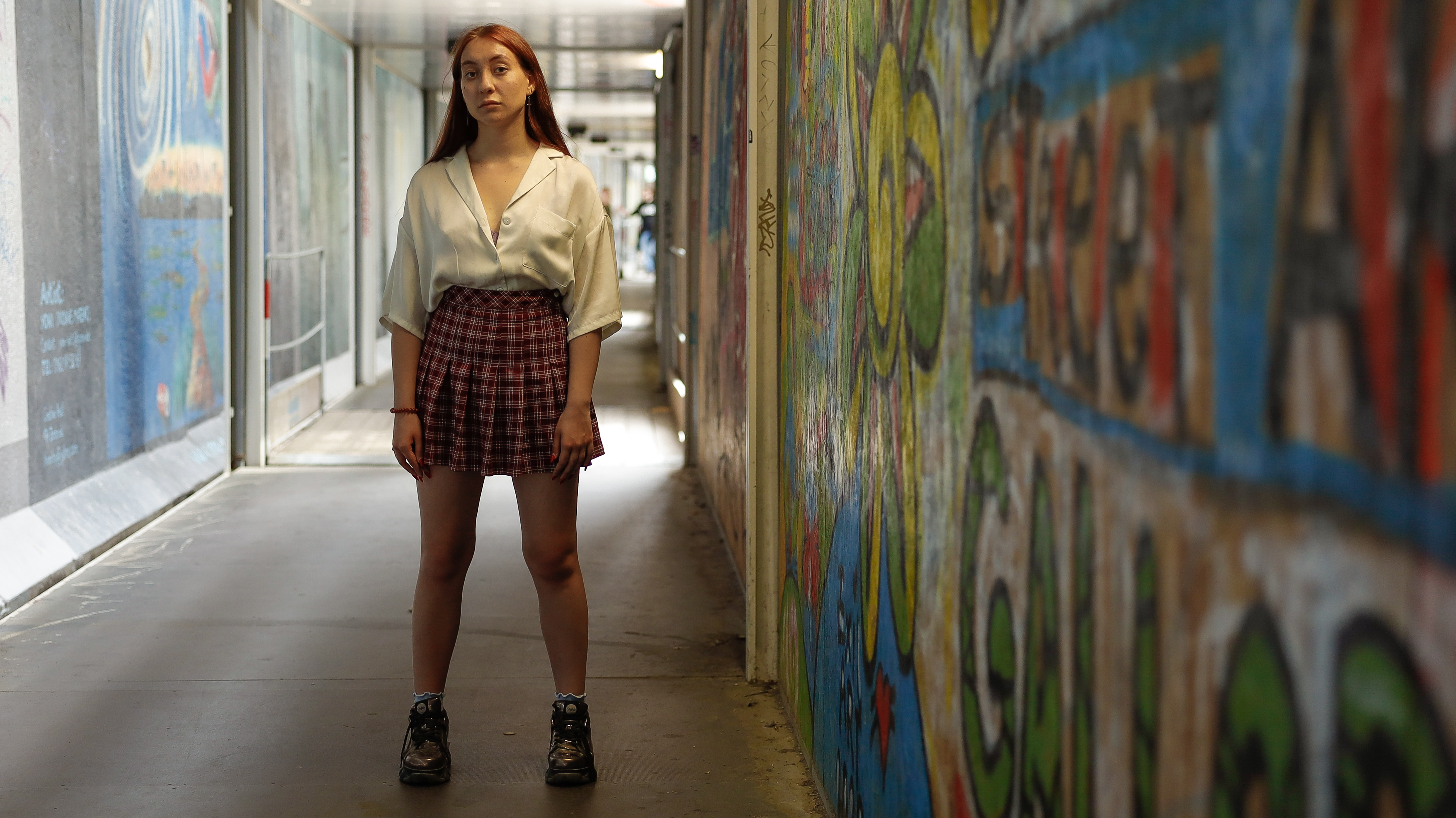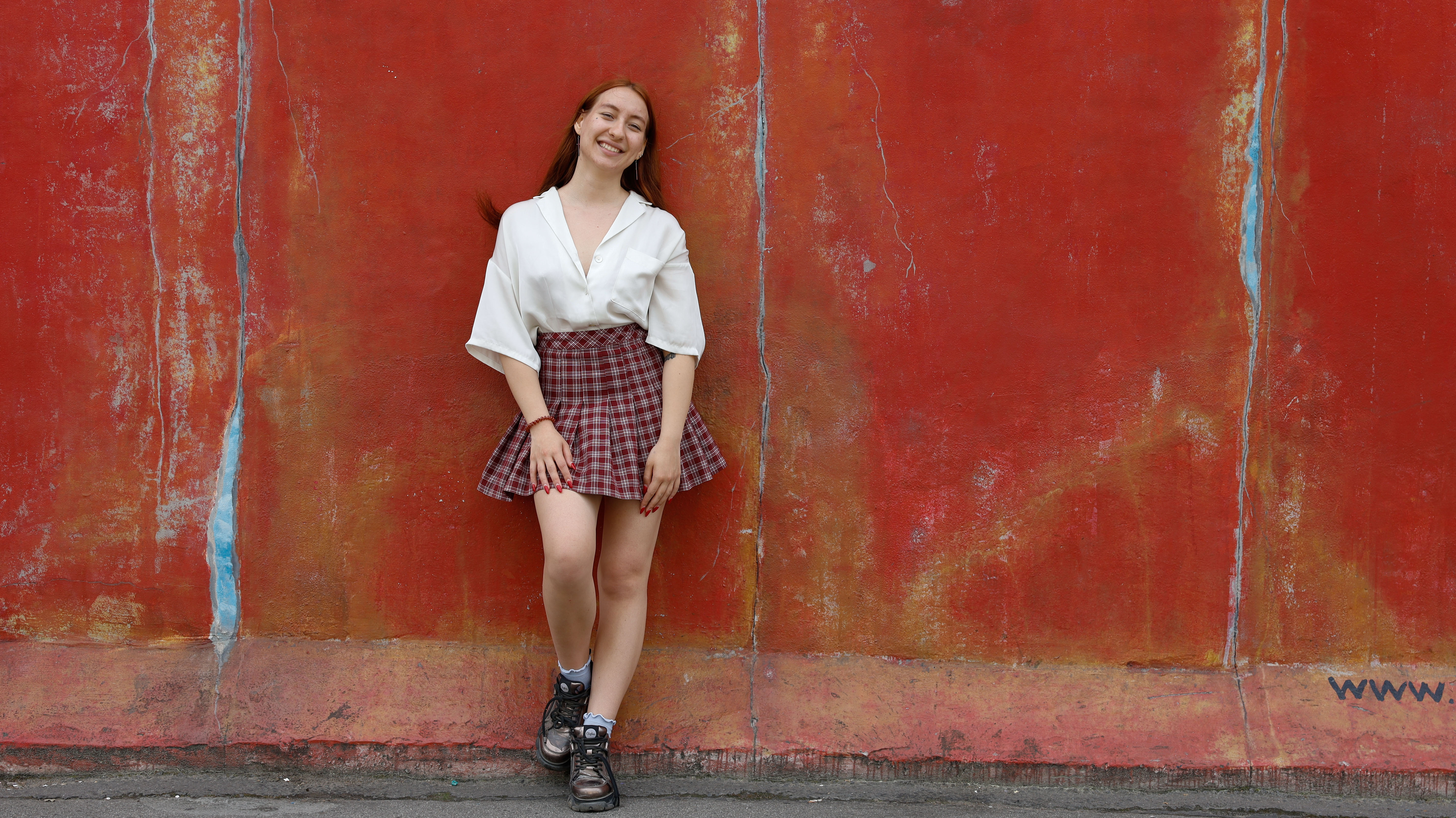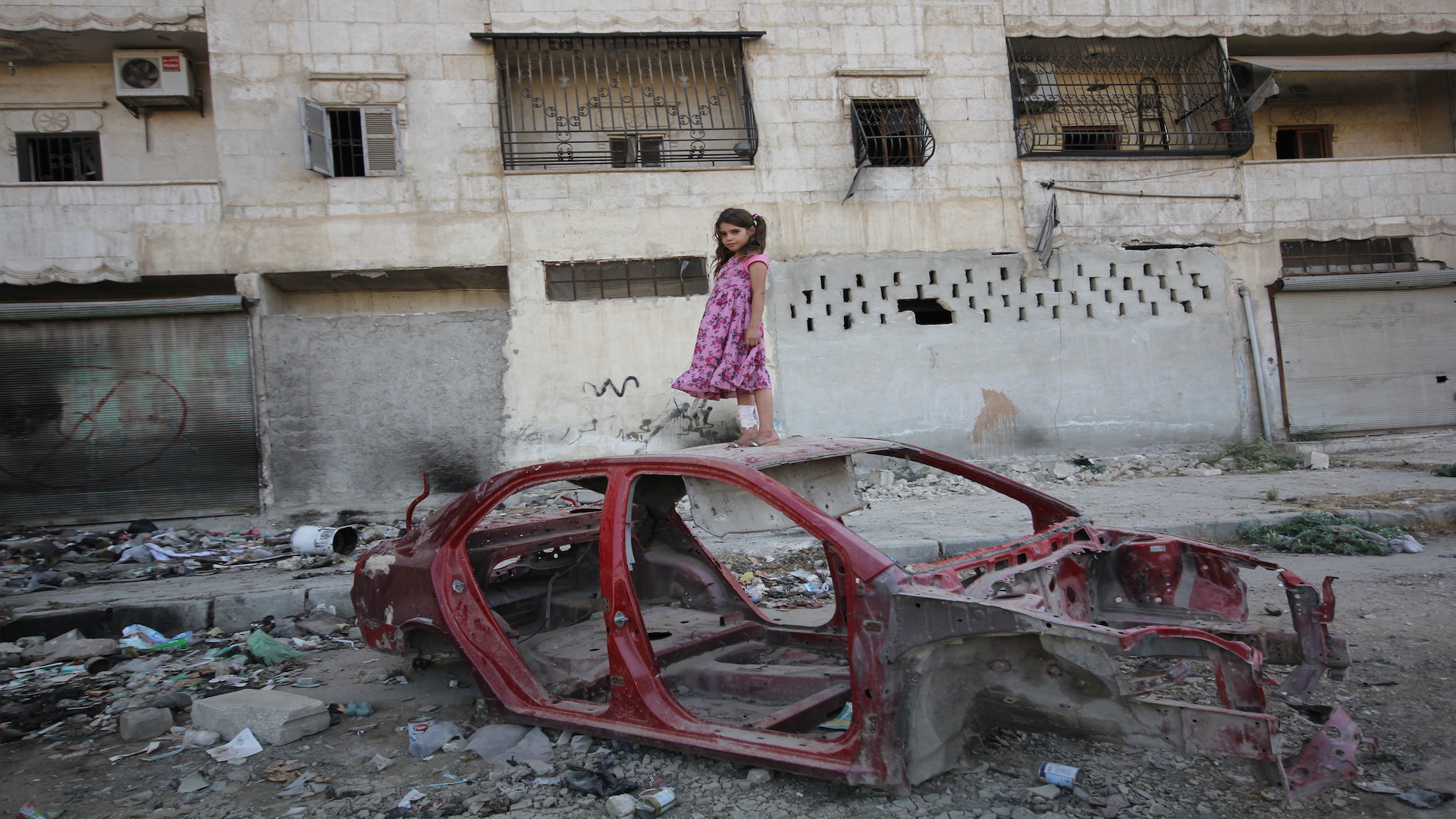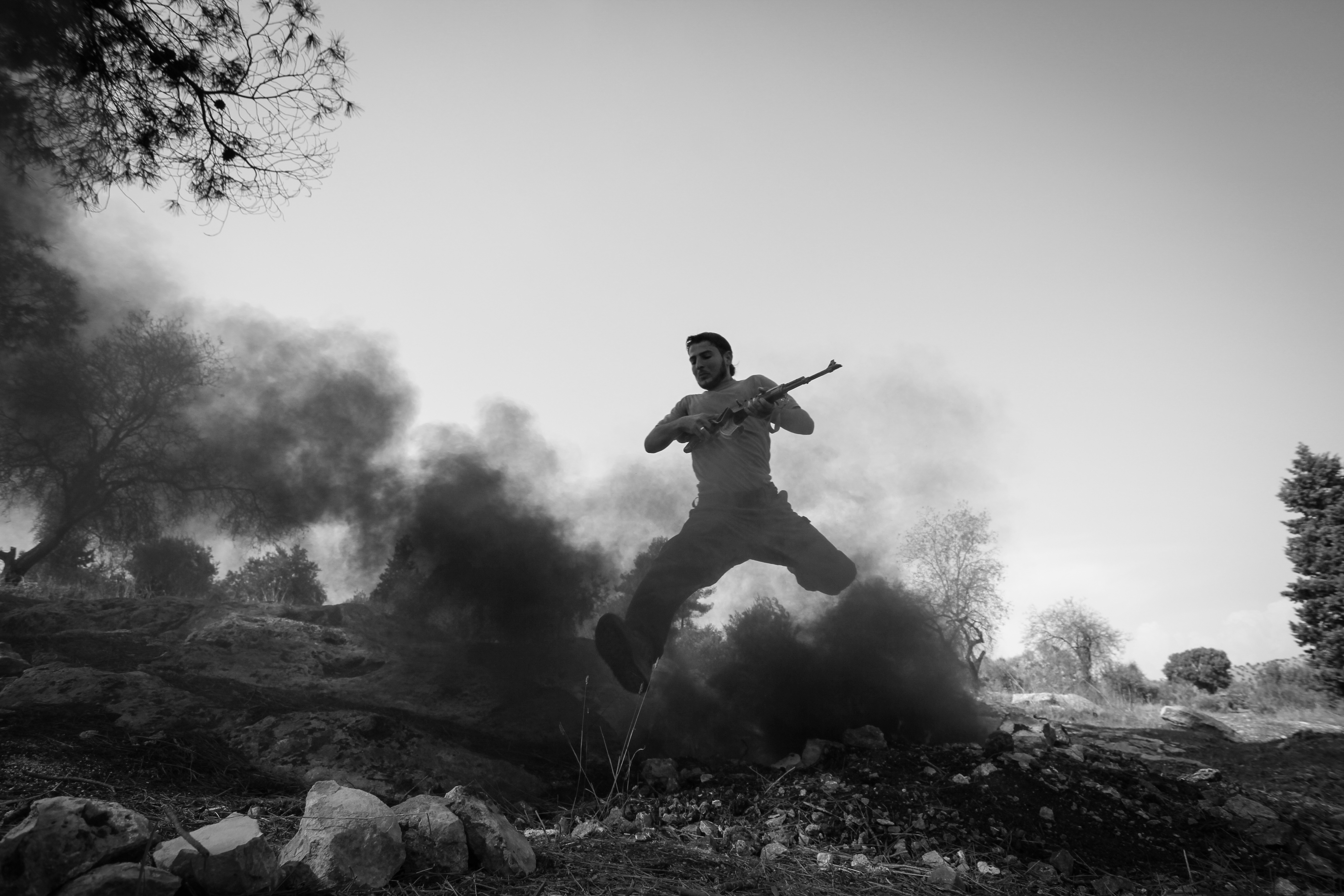This piece was published in collaboration with Der Journal and has also appeared in Arabic and Norwegian.
When I arrived in Paris in 2017, I was told that exile is a social condition. It has always given me a desire to highlight stories that address this subject. In this process, I met with Polina, 19 years old, and Wafa, 32 years old. They are both activists who live the dream of freedom. They care about the Ukrainian and Palestinian causes as much as they care about the freedom of their own countries: Russia and Syria. I recently spent a week with them in Berlin, where they convinced me that exile is more a state of mind. Despite their difficult pasts, Polina and Wafa are among the most positive and caring people I’ve ever met.
Not long ago, I took the bus to go back and forth from Berlin for 17 hours of travel. It's almost the same number of hours that I spent on the bus in December 2016, when the Russian military forcibly displaced Aleppo residents, my city, who have experienced a seven-month siege in which we were totally cut off from the world. The most brutal feeling a person can bear is living in exile in their own home.
In 2011, Syria was in the midst of a revolution. Like Wafa, I participated in these peaceful demonstrations demanding our basic human rights, dignity and freedom. If someone had told us during those early days that there would be a war, that we would gain life but lose our fathers, that we would meet in Berlin one day to make a report on our hopes and disappointments, we wouldn’t have believed them. When Wafa spoke with me about her father, it seemed there was a bullet in her heart. I felt her pain, and she awakened my own pain like an echo. My own father was working with the White Helmets, "Civil Defense in Aleppo". He was killed during the war; I no longer have to bear the weight of hoping for his unexpected return. Wafa's father was an activist. He was arrested nine years ago in Damascus and has not been heard from since. The hope that Wafa carries is the source of this endless motivation in her political work.
In the 11 years since those protests, the Russian-backed Syrian regime has arrested nearly 100,000 people with or without reason in order to terrorize the population. That same regime has also killed more than 350,000 people in order to stay in power, and to rule the country with pain and fear. Any normal human being would eventually fade away from the task of bringing back a long-disappeared loved one. But Wafa has not. Instead, she tries to resist pain and oblivion. She chose to be a journalist and an activist, relying on a hope that does not depend on justice to survive.Wafa lives in Berlin, in a small room filled with Frida Kahlo quotes and pictures of her father. She lives a little for herself, and a lot for her father, for the 100,000 inmates in Assad's prisons. In her Instagram biography, she introduces herself as the daughter of Ali Mustafa. “For 9 years, I have never stopped wondering if my father is alive or dead. I haven't slept a single night without imagining that my father was hungry, cold or tired. Is he dreaming, is he singing, will he come back or not?” And on top of that, she cares about the Ukrainian and Palestinian causes as much as the freedom of her country and her father. On May 20, 2022, after years of fighting in defense of human rights and for the freedom of her father Ali Mustafa, Wafa received the Pimentel Fonseca Prize, which recognizes women journalists. In the same month, Wafa saw news of the regime’s newest general amnesty decree, granted to prisoners who had been convicted of political charges. Syrian families were anxiously waiting to see who would be released from prison as part of the amnesty. “I’m searching for my father's name among all names,” Wafa wrote on Instagram. “Every time I read 'Ali' my heart grows bigger, and every time I read the different last name my chest tightens.”This is a reminder to all of us that the Syrian regime is still in power. Indeed, the regime even tried sending its forces to Ukraine to support Russia’s war there. It’s impossible to imagine how many more fathers might be killed. How many are already in prison or will soon be? How many daughters, sons, sisters, brothers, mothers, fathers and lovers will learn to live in loss, in endless waiting, in expectation and hope?
The harshest image that Russian playwright Chekhov describes in his play, Uncle Vanya: “Life is wasted on the wrong person, the wrong job, the wrong place, the wrong choices.” At first read, Chekhov's words seem logical. But it is far from simple to make these choices. There's nothing worse than turning 19 years old, being chased by the police, and finding that your father is against the choices you made. This is exactly what happened with Polina when she fully engaged against Vladimir Putin. She was supposed to attend chemistry school in Moscow and spend time with her friends and family, but she was followed by the police and arrested several times because of her political activism. The police has sealed off her entire apartment on January 16, 2022, which pushed her finally to leave her country. She took only her plush toy called Uchikuvshinum, a transitional object from the sweetness of her childhood, on a seven-day itinerant trip by bus. By spending time with Polina, you can easily see the love she has for her country, and that her political activism has been done out of love.
Putin claims that he is defending his country, and Syria too, but he is the reason Polina and I left home and that we met in Berlin today. Russia and Syria are known as dangerous places, full of oppression and war, but these places were our beautiful homes, full of love, colors, and life. The FCK PTN photo in front of the Russian Embassy in Berlin was also made out of love… The love of freedom. I take this opportunity to thank the seller who sold us the sweater for half price when he heard our stories!
Polina might only be 19 years old, but her awareness, and her particular way of seeing life make her seem much older. She perceives Berlin as a cold city. The place where she spends the most time is the street where the Russian Embassy is located, to continue to campaign against the war in Ukraine. She devotes the rest of her free time to visiting museums, to understand conflicts throughout history. She is trying to use social media to raise awareness among the Russian people about the seriousness of the situation.
Chekhov told us in his play about this multitude of choices that life constantly pushes us to make, made up of doubts, difficulties, and challenges. Polina longs for a life that suits her better. She will soon leave Berlin to study political science at New York University in Abu Dhabi. She is motivated and has already started to learn the Arabic language. Another world, another culture, a new adventure awaits her…
I am more delighted to be able to share, through this little report on Wafa and Polina, the pleasure I had to hear them, to see with what force all these sorrows and wounds find refuge in the tiny hope of better days.


